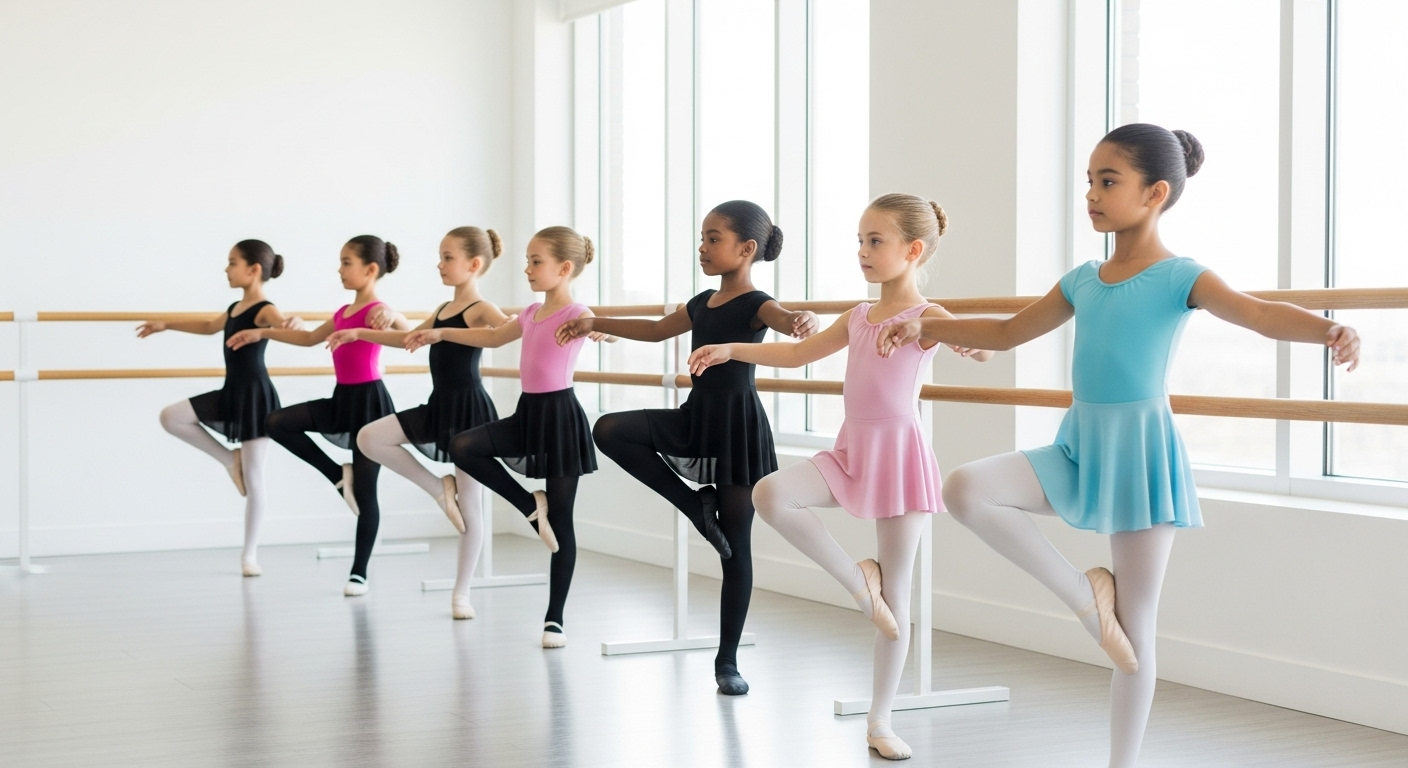The Benefits of Ballet as a Sport for Children
By Vole Ballet School
Published: 8 October 2025

Ballet is more than an elegant art form—it's a dynamic sport that fosters physical, mental, and emotional growth in children. Discover how ballet builds discipline, strength, motor skills, and lifelong healthy habits.
Ballet is more than an elegant art form—it's a dynamic sport that fosters physical, mental, and emotional growth in children. Through its unique blend of discipline, athleticism, and creativity, ballet equips young dancers with skills that benefit them both in the studio and in everyday life. Below, we explore the key advantages of ballet as a sport for children, from building discipline to enhancing balance and strength.
Fostering Discipline
Ballet instills a strong sense of discipline in children. The structured nature of classes, with their focus on precise techniques and consistent practice, teaches kids to follow routines and stay focused. Mastering steps like pliés or arabesques requires attention to detail, encouraging habits of self-control that extend to schoolwork, extracurricular activities, and personal responsibilities. This discipline becomes a foundation for success in various aspects of life.
Enhancing Body Conditioning
As a sport, ballet provides exceptional body conditioning. It engages the entire body through movements that build strength, flexibility, and endurance. Exercises at the barre and in center work target core muscles, improve posture, and promote joint mobility in a low-impact way. This holistic conditioning helps children develop a strong, resilient physique, supporting overall physical health and reducing the risk of injuries in other activities.
Encouraging Commitment to Goals
Ballet teaches children the value of commitment. Whether working toward mastering a new step, preparing for a performance, or advancing through graded exams, young dancers learn to set goals and persevere through consistent effort. This process builds resilience and confidence, showing kids that dedication pays off. The commitment cultivated in ballet translates to academic pursuits, sports, or any endeavor requiring sustained focus.
Achieving Long-Term Success Through Incremental Gains
Progress in ballet is gradual, emphasizing the importance of small, consistent efforts toward long-term goals. A child might spend weeks perfecting a single move before combining it into a sequence, learning patience and the power of incremental gains. This approach mirrors real-world achievements, teaching kids that persistence in small steps—whether in dance or elsewhere—leads to significant outcomes over time.
Promoting a Healthy Body and Mind
Ballet nurtures both physical and mental well-being. The physical demands of dance improve cardiovascular health, coordination, and muscle tone, while the creative expression involved reduces stress and boosts emotional health. Research highlights that activities like ballet can enhance mood and cognitive function in children, fostering a balanced lifestyle. The focus required during classes also encourages mindfulness, helping kids manage stress and stay present.
Developing Motor Skills
Ballet is a powerful tool for developing motor skills in children. It refines gross motor skills through large movements like jumps and spins, while intricate footwork and arm positions hone fine motor skills. These abilities translate to everyday tasks, such as writing or playing sports, and support overall physical coordination. Starting ballet at a young age helps build a strong foundation for motor skill development, benefiting children in multiple areas of life.
Building Balance and Strength
Ballet excels at improving balance and strength, key components of physical fitness. Core-focused exercises and barre work enhance stability, while dynamic movements like leaps and lifts build power in the legs and upper body. These skills not only reduce the risk of falls but also improve performance in other physical activities. Over time, ballet strengthens muscles and improves coordination, creating a solid base for lifelong fitness.
In conclusion, ballet as a sport offers children a unique opportunity to grow physically, mentally, and emotionally. From fostering discipline and commitment to enhancing motor skills and strength, the benefits of ballet extend far beyond the studio. For parents considering activities for their children, ballet provides a rewarding path to personal development and a healthy lifestyle.